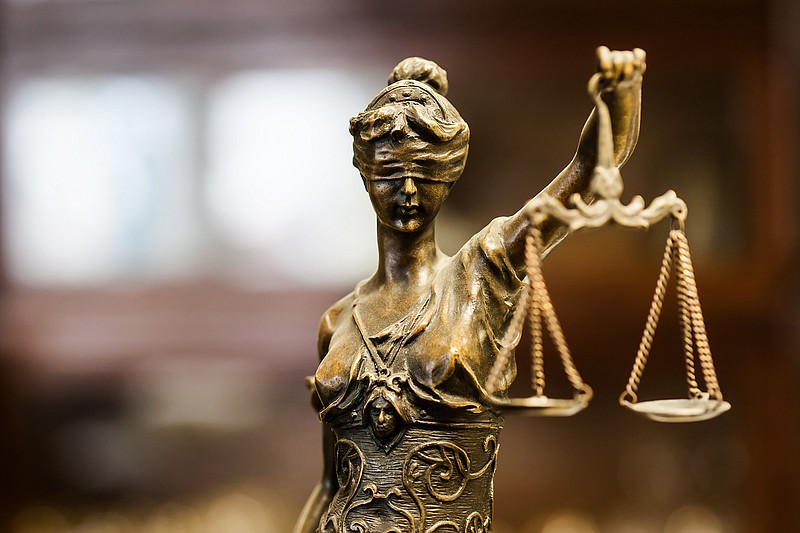FAYETTEVILLE -- The U.S. attorney for the Western District of Arkansas canceled the federal grand jury for January because he has no more money to transport witnesses and pay other expenses during the government shutdown, U.S. Attorney Duane "Dak" Kees said in a statement Tuesday.
"No criminal cases will be dismissed and no trials or other hearings will be moved at this time due to this cancellation," Kees said. "The cases that would normally be presented to the grand jury for indictment this month will be resolved in other ways."
Dismissing this month's grand jury will not affect the ongoing public corruption probe of state legislators, which has charged five former lawmakers so far and convicted four of them, Kees said.
"That investigation at this stage mainly involves reviewing of records, and that has not stopped," he said.
Criminal defendants will get the option to waive indictment by a grand jury and proceed to plead guilty to charges filed by his office, Kees' statement said.
"Another option is to request an order from the United States District Court to impanel a new grand jury later for each division" within the district, the statement said.
Those grand juries could meet and hear witnesses without travel expenses to and from Fort Smith for witnesses and investigators, one of the major costs of grand jury operations, Kees said. The canceled grand jury session was supposed to be next week.
These changes will mean his office will have to show more of its hand when bringing charges, said both Kees and attorney Shane Wilkinson of Bentonville. Wilkinson's clients include former state Rep. Micah Neal, R-Springdale, who waived indictment and pleaded guilty to a conspiracy charge two years ago.
"If they ask me to waive an indictment, I'm going to ask 'What do you have?'" Wilkinson said. "If they're going to ask my client to do this, we get to peek under the hood" at the federal case.
With a grand jury, U.S. attorneys get to present their evidence and witnesses to the panel of 16 or more members who then decide whether to indict. The defendants see the full case sooner than they normally would.
Cases where the defendants don't waive indictment -- or because the suspect is considered a serious flight risk or danger -- federal authorities will go ahead and make an arrest, Kees said. In cases where the grand jury isn't involved, his office will have to hold a probable cause hearing before a federal judge. Judges remain at work during the shutdown.
Holding a probable cause hearing, again, will result in the federal government having to show more of its case earlier in the process than normal, Kees said.
One of the biggest losses to his office will be the guidance grand juries provide, he said.
"Grand jurors are not lawyers," he said. "They don't get caught up in the legalese, which U.S. attorneys and investigators tend to do. Grand juries aren't exactly like a trial jury, but they do show you which witnesses are effective and which are not, too. We might think somebody is a credible witness, but putting him before a jury might show he's not."
There are other advantages to defendants in this situation, according to Wilkinson.
"They will have a little more control over timing," he said. "They'll be able to say, 'If I'm going to do this, I don't want to do it until such and such a time," he said. "And they might be able to ask for things like home detention and stand a better chance of getting it."
The U.S. Justice Department will also be asking local prosecutors to take over cases if state laws apply, Kees said. His office has good relationships with local attorneys and will work with them, he said. Also, the federal government has the right to take a case back at a later date if it can show compelling federal interest, he said.
How close the state prosecutor in a given case is to trial and how much work is involved in preparing the state's case will weigh into any decision before taking a case back, he said.
The Justice Department has contingency procedures in place in the event of a such a lapse in funding to ensure public safety and national security, Kees said. Typically, employees with public safety and national security functions will stay on the job while others who are given an exception will be furloughed.
Each U.S. attorney's office has discretion to determine who remains on duty. Most assistant U.S. attorneys and staff supporting criminal prosecutions will remain at work, Kees said.
NW News on 01/23/2019

